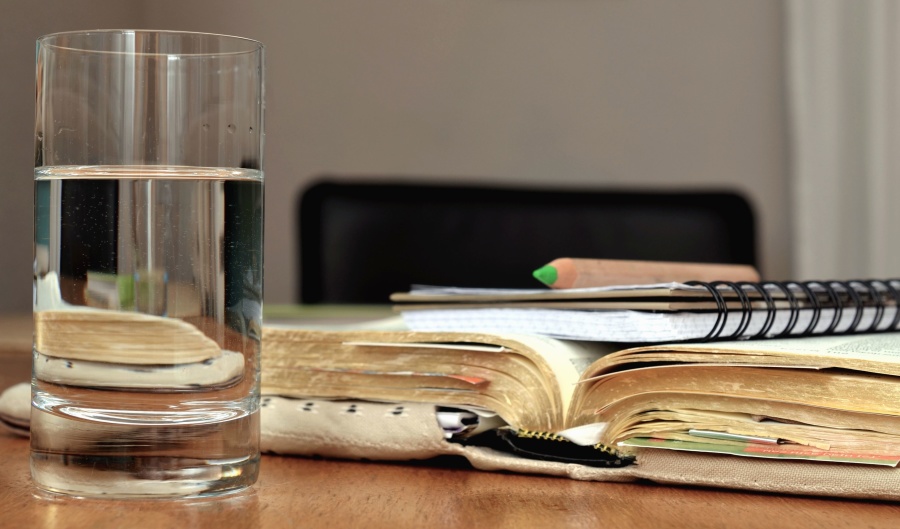Here's How to Create the Ideal Home Study Space
Your home can sometimes be the best place to study, but it might also be the only place you have. Whether you choose to study at home or you just have to make the best of it because you have nowhere else to go, there are a few things that you can do to set up the perfect study environment. Everyone has different preferences for their ideal place to study, but there are some things that most people will want to have to make their study experience better. You don't have to have a whole office or study of your own, but being able to carve out a small space for yourself is helpful.
Get Comfortable - But Not Too Comfortable
When you're studying, you don't want to be so uncomfortable that you can't stay sitting down. However, you also don't want to be so comfortable that it's easy for you to get distracted. When you're setting up your study space, make sure you have a supportive chair to sit in. Rather than lounging on the sofa, at least consider sitting up in an armchair so that you're not at risk of accidentally taking a nap. If you're going to be typing a lot during your studies, you should have a desk or other surface and consider having a support for your wrists.
Remove Distractions
There are so many distractions that can stop you studying, especially when you're at home. It's so easy to wander off and grab a snack, start watching TV or even start cleaning the house when you don't feel like studying. If you want to create the perfect study space, you need somewhere that has as few distractions as possible. That's why it's useful to create at least a small area of a room, if not a whole room, where you can remove distractions as much as possible. Try to get rid of anything that you might be tempted to fiddle with or even look at.
Store Some Snacks
Some people like to get snacks while they're on their breaks so that they have something to get up for. But if you study better when you have snacks next to you, you should have somewhere to keep them. Use a cupboard or cabinet to store a few snacks so you can easily reach for something to give you energy when you need it. You could even have a mini fridge for cold drinks if you don't want to go too far to get one.
Ensure a Strong Connection
It would be great if you could turn off your internet connection to study for maximum concentration. Unfortunately, you often need to be connected to the internet to study. At least if you can't prevent the internet distracting you, you can at least avoid being slowed down by an unreliable connection. One of the benefits of getting high speed internet is that you won't have to deal with dropping out and slowness when you're trying to be productive. A fast connection can help you to get your studying done quicker and easier so that you can get on with other things.
Get the Lighting Right
The lighting in your study space can make a big difference to how well you can work. To begin with, you don't want to have any glare on your computer because it could be very distracting. You don't want it to be too dark or you might just feel like falling asleep, but too much artificial light could cause eyestrain. Try to maximize natural light when you can and use a warm but bright light when there's no sunshine to rely on.
Create a Comfortable Temperature
Temperature can also affect how well you are able to study. If it's too warm, you can feel hot, sticky and frustrated, or perhaps like you want to take a nap. Too cold, and you might be using up all your energy trying to stay warm, so there's none left for your brain. Set the temperature in your study space at a comfortable level so that you don't have to think about it while you're trying to study. If you're trying to save money, put on an extra layer when it's cold instead of turning up the temperature.
Choose Between Silence or Music
Some studies might show one way or another whether silence or music is best for being productive. But it often just comes down to personal taste when you're studying. Total silence can be hard to get at home anyway, so you might prefer to create a setup for listening to music instead. For a balance between the two, try ambient sounds or instrumental music. If you do decide that you would prefer quiet, you could create a study space that helps to block out and absorb sound. Soft furnishings help to prevent echoing noises, but closing your window and door will keep sounds out.
Bring in Some Nature
Having plants in your study space can be a great way to make it more calming. House plants can help to improve the quality of the air indoors too, so it could even help to make your study space healthier. A couple of plants can give you something to look at when you want to rest your eyes and remind you to take a breather now and then.
Use a Clock
Studies have shown that working in short bursts can be a good way to be productive. A 20 minutes study period, when you concentrate the whole time, followed by a short break of a few minutes can help you work in short but intense chunks of time. Hanging a clock on the wall or having one on your desk can be a good remind of the time, instead of just having a computer clock which you might block out. It's also a good idea to have an alarm that you can set.
Create the perfect study space by setting up somewhere comfortable and free of too many distractions.


